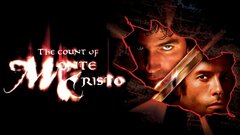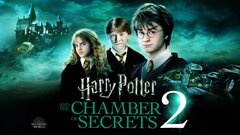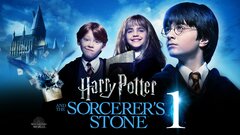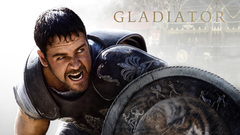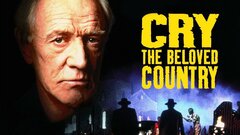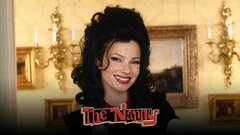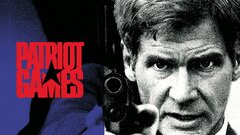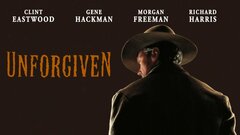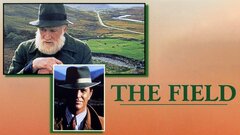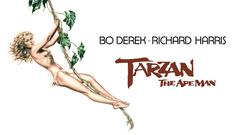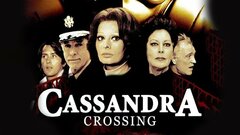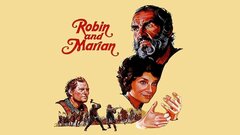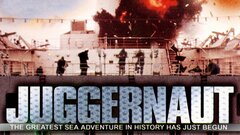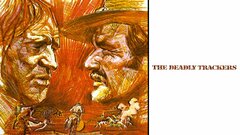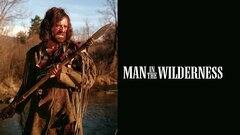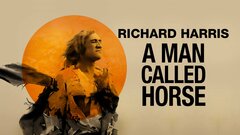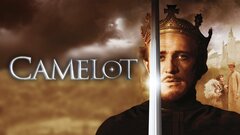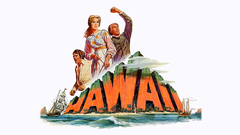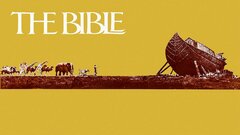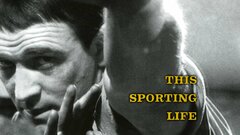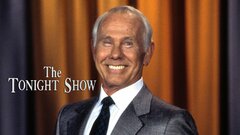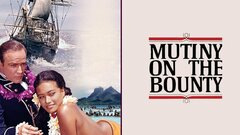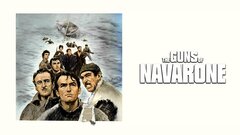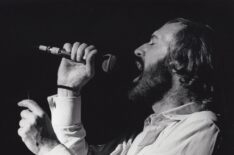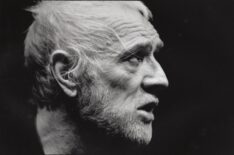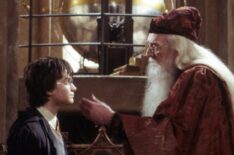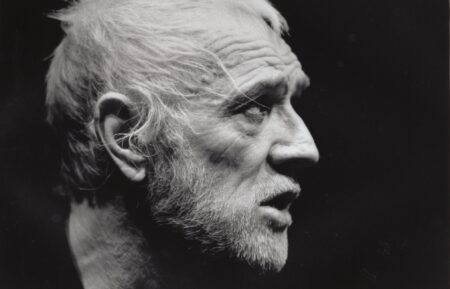An Irish rogue who emerged from England as one of its most accomplished performers, actor Richard Harris typified the angry young man persona of 1960s British cinema, both on and off the screen. Having come into his own as a rough-and-tumble rugby player in "This Sporting Life" (1963), Harris quickly became one of England's preeminent actors, with quality turns in prominent American films like "Mutiny on the Bounty" (1962), "Major Dundee" (1965) and the adaptation of the popular musical "Camelot" (1967).
Behind the scenes, much like his contemporaries Richard Burton, Peter O'Toole and Oliver Reed, Harris was a student of the bad boy school of talented thespians, with an unquenchable taste for booze and women who never let a bender get in the way of a sterling performance. Because of his experience with "Camelot," Harris embarked on a surprisingly successful singing career that reached its peak when his single, "MacArthur Park," became a big hit in 1968.
Following a fine leading turn in "A Man Called Horse" (1970), his acting career began to slide, thanks to a string of rather mediocre genre films and diminishing performances brought on by his worsening alcoholism. After sobering up toward the end of the 1980s, the newly confident actor earned an Oscar nod for his excellent performance in Jim Sheridan's "The Field" (1990). He next chewed up the scenery as the flashy gunman English Bob in "Unforgiven" (1992) before playing Marcus Aurelius in "Gladiator" (2000) and Professor Dumbledore in the first two "Harry Potter" movies.
Having died before "Harry Potter and the Chamber of Secrets" (2002) was released, Harris left behind a trail of broken bottles and shattered hearts, as well as a legacy of being one of Ireland and England's most important and beloved performers.
Born on Oct. 1, 1930 in Limerick, Ireland, Harris was raised the fifth of nine children by his father, Ivan, owner of a flour mill, and his mother, Mildred. Raised in a staunch Catholic home like any good Irishman, Harris was a talented rugby player for Sacred Heart Jesuit College, who found his playing days cut short after he contracted tuberculosis. Following his recovery, he moved to England determined to be a director, but instead discovered acting when he enrolled at the London Academy of Music and Dramatic Art.
He finished his training at the Academy in 1956 and went on to study further at Joan Littlewood's International Theatre Workshop while making his West End stage debut in the workshop's production of "The Quare Fellow" (1956). Harris also financed and directed his own production of Clifford Odet's "Winter Journey" (1956), a critical success that nonetheless flopped financially and left the young actor broke. On the heels of the London stage production of Arthur Miller's "A View from the Bridge" (1956), Harris made his television debut with a small part as a blind Irishman in the "The Iron Harp" (1957). By this time, he had married his first wife, Elizabeth, despite already being a notorious lady's man actively pursuing sexual encounters wherever he could find them.
Harris made his film debut in the British comedy "Alive and Kicking" (1958) while returning to the London stage in a production of "Man, Beast and Virtue" (1958) before embarking on a tour of Eastern Europe and Russia in a production of "Macbeth." Following more prominent parts in "Shake Hands with the Devil" (1959) and "The Wreck of the Mary Deare" (1959), as well as his first leading stage role in a production of "The Ginger Man" (1959), he had a small, but memorable turn as a disagreeable Royal Air Force squadron leader in the all-star war film, "The Guns of Navarone" (1961). He next had major supporting roles in "The Long and the Short and the Tall" (1961) and "Mutiny on the Bounty" (1962), where he and several other actors had famous fallings out with the film's difficult star, Marlon Brando. Harris finally landed his first leading role in a feature with "This Sporting Life" (1963), a gritty and bleak look at the rise of a coal miner-turned-rugby player who amasses considerable wealth while falling for a lonely widow (Rachel Roberts). Widely considered to be one of the best British films ever made, "This Sporting Life" presaged the so-called kitchen sink films to emerge from England a few years later.
Following a starring role in Michelangelo Antonioni's "Il Deserto Rosso" (1964), Harris was an Irish immigrant turned Confederate officer during the Civil War in director Sam Peckinpah's lost masterpiece, "Major Dundee" (1965). In John Huston's epic telling of "The Bible" (1966), Harris portrayed the murderous Cain opposite Franco Nero's Abel before taking over the King Arthur role from drinking buddy Richard Burton for the filmed version of the long-running musical, "Camelot" (1967), which allowed him to display a surprisingly good singing voice. Over the years, he reprised King Arthur in numerous stage productions of the musical, claiming some 2,000 performances while stopping by "The Tonight Show Starring Johnny Carson" (NBC, 1962-1992) in 1992. Because of "Camelot," Harris found a second career as a professional singer, thanks to his hit single "MacArthur Park," which climbed all the way to No. 2 on the Billboard charts in 1968. Meanwhile, he starred in "A Man Called Horse" (1970), playing a British lord adrift in the 19th century American West who is captured by the Sioux Indians and eventually allowed to join the tribe. Following a leading turn opposite Sean Connery in the gritty, but underwhelming drama "The Molly Maguires" (1970), Harris faltered a bit with "Cromwell" (1970), a lavish biopic of military leader Oliver Cromwell, who temporarily overthrew England's monarchy in the 17th century.
If the 1960s were a fountain of success for the actor, the following decade proved to be a comedown for Harris, who saw himself cast in a number of mediocre projects while his personal life - particularly his struggles with alcohol and drugs - spiraled out of control. He starred in such misfires as "Man in the Wilderness" (1971) and "The Deadly Trackers" (1973), before joining the all-star cast of the disaster flick "Juggernaut" (1974), starring Omar Sharif and Anthony Hopkins. After playing a hitman in John Frakenheimer's bizarre crime thriller "99 and 44/100 Percent Dead" (1974), Harris portrayed King Richard the Lionheart in "Robin and Marian" (1976) before joining Sophia Loren, Ava Gardner and Martin Sheen for the rather middling disaster thriller, "The Cassandra Crossing" (1976). Harris fared well when he starred in the sequel "The Return of a Man Called Horse" (1976), but perhaps hit bottom as an obsessive whaler in the irredeemable "Jaws" rip-off, "Orca" (1977). He next joined fellow Brits Roger Moore and Richard Burton for the action-packed yarn "The Wild Geese" (1978), only to find himself hamming his way through such dreadful movies like the Canadian-made "Highpoint" (1979) and "The Ravegers" (1979).
By this point in his life, Harris had reached rock bottom both personally and professionally, thanks in large part to his insatiable desire for excessive drinking that often led to blacking out. In fact, he had a major scare in 1978 when he suffered a near-fatal cocaine overdose and was rushed to Cedars Sinai Hospital in Los Angeles. Following another onscreen embarrassment with "Tarzan, the Ape Man" (1981), a simply awful movie that focused more on Jane Parker (Bo Derek) than the famed titular character (Miles O'Keeffe). Having survived his cocaine overdose and a fallow onscreen period, Harris proceeded to kick his longstanding alcohol addiction and found a career jump-start when an ill Richard Burton asked him to finish the final eight weeks of a "Camelot" tour in 1982. Harris eventually stayed with the show for five years, buying out the show's original producers and netting himself a tidy profit. In 1982, he finally gave up drinking altogether after being told by doctors that he would die of hypoglycemia within 18 months if he failed to quit. Following a period of relative inaction, a confident Harris returned to the London stage in a triumphant production of "Henry IV" in 1989, while his screen career received a boost when he played a white-haired curmudgeon determined to hold onto his property in "The Field" (1990), directed by fellow Irishman, Jim Sheridan. The role earned Harris an Academy Award nomination for Best Actor.
Harris moved on to a triumphant 1990 London run of "Henry V" that won several awards before landing the flashy supporting role of hired gun English Bob in Clint Eastwood's Oscar-winning Western, "Unforgiven" (1992). He followed with a leading role as a robust blowhard of a sea captain who delights in telling of his "Wrestling Ernest Hemingway" (1993), before a turn as an African landowner whose son is killed by his neighbor's son in "Cry, the Beloved Country" (1995), co-starring James Earl Jones. Harris next took off for Dublin to film the two dramas, "Trojan Eddie" (1997) and "This Is the Sea" (1997), before offering nuanced performances in a variety of genre films like "The Hunchback" (1997), "To Walk With Lions" (1999) and "Grizzly Falls" (1999). He was particularly memorable as Marcus Aurelius, the aged benevolent Roman Emperor who treated his favored general Maximus (Russell Crowe) like a son, only to be betrayed and murdered by his own offspring (Joaquin Phoenix) in the Oscar-winning epic, "Gladiator" (2000). The actor was next discovered by a new generation of fans when he assumed the key role of the wise Professor Albus Dumbledore in the film adaptation of author J.K. Rowling's smash children's book, "Harry Potter and the Sorcerer's Stone" (2001).
Harris followed with a leading role in the British crime thriller "My Kingdom" (2002) and played the innocent Abbe Faria in the compelling adaptation of Alexandre Dumas' "The Count of Monte Cristo" (2002). Meanwhile, he had already filmed his performance for "Harry Potter and the Chamber of Secrets" (2002) and signed on for the third installment - which he did after his young niece reportedly refused to speak to him ever again if he did not - when news broke in October 2002, about a month before the release of the "Harry Potter" sequel, that the actor was being treated for Hodgkin's Disease in a London hospital. Approximately two weeks later, on Oct. 25, 2002, Harris succumbed to the disease. After his death, the actor was featured in his final on-camera role, appropriately in another splashy historical epic, as Lucius Cornelius Sulla in the made-for-cable miniseries "Julius Caesar" (TNT, 2003). Ever upfront and self-deprecating about his hard-living past, the legendary belter once suggested his own epitaph: "Get laid, get pissed, move on." Instead, his body was cremated and his ashes spread in the Bahamas where he had owned a home.




